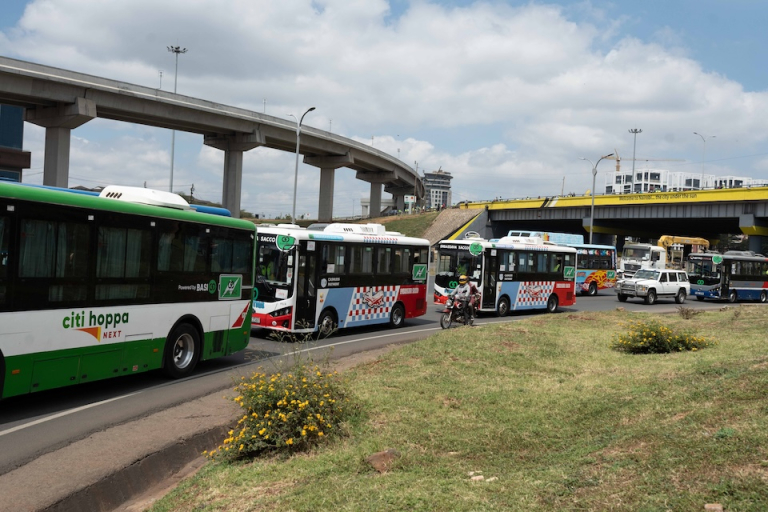Chinese tech is driving Africa’s electric vehicles (EVs) industry, but partnerships and collaborations between African players are making more significant advances in the nascent industry.
However, the success of these collaborations lies in the personalized relationships between Chinese suppliers and EV dealers on the continent.
Across Africa, Chinese companies have made inroads in the EV market because, according to local dealers, they are much easier to work with than automakers from other countries, particularly those from Europe and the United States, among others.
“The Chinese are very flexible. I can chat with my provider on a warrant issue [in real time], and you will find they’re very, very reactive. This flexibility has helped many companies dealing with Chinese suppliers by making business seamless because time, again, is money. But in some areas, you have to write an email, and they put you on hold or a waiting list,” says Dennis Wakaba, a Kenyan EV consultant who has been in the industry for over a decade.
Speaking after the Africa E-Mobility Week that took place earlier this month in Nairobi, Wakaba added that affordability is another factor giving Chinese tech an edge over other suppliers.
Despite the availability of Chinese tech and the ease of using it, many countries still face numerous challenges, such as inadequate charging infrastructure, expensive electricity, and limited government support, slowing its adoption. To bypass some of these hurdles, many African innovators have found it easier to partner with their Chinese suppliers to make the EV transition a reality.
A rider enjoys an e-bike built using Chinese tech in Nairobi, Kenya. Photo / CGSP
Wakaba said that leveraging Chinese EV technology is critical for Kenya’s and Africa’s shift to renewable energy in e-mobility and that similar industries need to be built in African countries since they are among the hardest hit by climate change. This way, they will be able to create jobs for their youthful populations, most of whom are unemployed, while also addressing challenges brought about by erratic weather patterns.
“We have been able to source many of the batteries, motors, controllers, and other components needed to build electric vehicles in Kenya. So far, we have just over a thousand electric vehicles, including bicycles, motorcycles, passenger cars, trucks, and buses, as well as specialized equipment like forklifts. All these are aimed at two things- saving the climate and money because it makes economic sense with an electric vehicle.”

Some of the e-bikes on display in Nairobi, Kenya during the Africa E-mobility Week in September. Photo / CGSP
While it is inevitable that foreign automakers will ship fully-made cars due to a lack of manufacturing capacity to assemble vehicles or because it’s too expensive, Wakaba explained that Chinese suppliers can still expand into the African market by allowing localization, where vehicle parts are locally assembled.
“In China, there is more supply and less demand, so countries in Africa definitely can absorb this technology but in a win-win cooperation. Since it’s basically an expansion of their market, whether it’s SUV passenger cars, trucks, buses, or motorcycles, I highly encourage never shipping fully built units because it is easiest to do complete knockdowns (CKDs) and localizing because it has been done. I can guarantee you the best motorcycles are being done here, and everybody is looking at it, benchmarking, then going back to China and seeing what they can do.”

Electric motorcycles with removable rechargeable batteries in Nairobi, Kenya, during the Africa E-mobility Week. Photo / CGSP
To make this possible, the umbrella EV associations in various African countries are pushing for local assembly, which will greatly reduce vehicle costs. This will influence consumers to buy second-hand vehicles, which remain the most attractive, not only for the Kenyan but also for the larger African market.

Some of the BYD electric buses and a JAC truck are on display in Nairobi, Kenya. This was during the Africa E-mobility Week in September. Photo / CGSP
Wakaba said that the cost factor draws people to second-hand vehicles because they are a bit cheaper, but EV dealers in Kenya have taken the initiative to build and assemble vehicles locally to create affordable products, which will attract more buyers from the used vehicle market.
He added that the EV associations are also discussing government policy, which is critical in incentivizing local assembly and manufacturing because of the ripple effects it generates regarding affordability, accessibility of the charging infrastructure, and climate goals in general.

Some of the electric vehicles used by Kenya’s utility company Kenya Power. Photo / CGSP
And to increase EV adoption and shift, Wakaba said they are encouraging users to start with small, accessible technologies like e-bikes and motorcycles instead of cars because of the cost factor.
For commercial vehicles like delivery vans, taxis, motorcycles, tuk-tuks (three-wheelers) for loads and passengers, and buses, the selling point is that there is more cost savings the more they move.
“For every kilometer you move, you save 50 to 80 percent of the cost you would have spent fueling. Commercial vehicles are on the road a minimum of 26 to 28 days a month or 320 days in a year doing 200, 300, and 400 kilometers every day, so they can save a lot. For example, for a bus, you are supposed to spend $200 in fuel, but you end up spending $70.”

Electric three-wheelers, commonly known as Tuktuks in Nairobi, Kenya, during the Africa E-mobility Week in September. Photo / CGSP
Looking ahead, the potential for local manufacturing of EV components, including chargers, is also promising.
Some companies have already started exploring options for localizing the assembly of charging infrastructure, which is less complex than manufacturing batteries. This will help create green jobs and further stimulate the economy.
While there is still much work to be done, the progress in electrifying Africa’s transport sector is undeniable, with more companies entering the space. Wakaba said that with the right partnerships, infrastructure, and policies, Africa is on the verge of a significant transformation.



